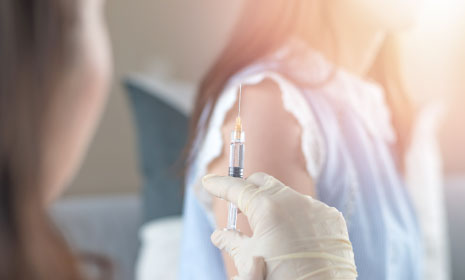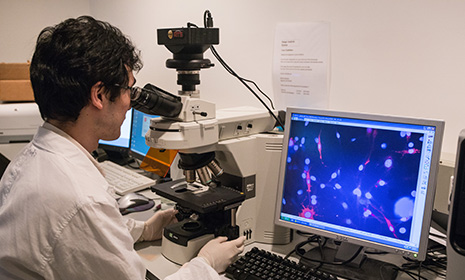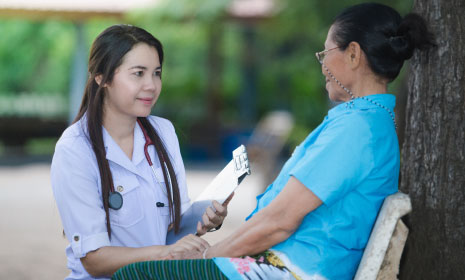Science Core
.jpg?h=198&iar=0&w=297&hash=B202DC181984E0958DDB74E68ED4CEB2)
Behavioural Sciences I
Course code: CMED2004
Course coordinator: Mr K Hon
This course introduces the psychosocial aspects of health and illness, in contrast to the biomedical approach. Students will be introduced to key concepts in developmental psychology, health psychology, and medical sociology. The course introduces students to the human developmental process within the context of Chinese culture and also examines ways in which health is shaped by social context, culture, social structure and social processes through examining fundamental sociological theories. The course also involves a collaborative project between nursing and medical students.
.jpg?h=198&iar=0&w=297&hash=B202DC181984E0958DDB74E68ED4CEB2)
Fundamentals of Human Anatomy and Physiology
Course code: BBMS1002
Course coordinator: Dr W Ching
OR
Human Biology
Course code: BBMS1001
Course coordinator: Dr W Ching
OR
Physiology for human movement
Course code: EXSC1004
Course coordinator:
This course provides the basic concepts related to the structure and function of the human body, including the organization of the body from single cell to the coordinated whole. Particularly, the course will focus on the body systems that respond to physical exercise, including cardiovascular, respiratory, renal, musculoskeletal, neural, and endocrine. The course serves a basis for understanding the normal processes of life. In addition, the course will describe how different tissues are organised to perform the essential physiological functions in human body.

Introduction to Human Anatomy
Course code: BBMS2004
Course coordinator: Dr H Yip
The course provides an understanding of the organization and functions of human body in relation to clinical practice. Introduction to human anatomy, cell structure, tissues, embryonic differentiation, musculoskeletal structures, brain and spinal cord, cardiovascular system, respiratory system, gastrointestinal system, endocrine system, urogenital system.
OR
Anatomy for Exercise and Health
Course code: BBMS2012
Course coordinator: Dr W Ching
The course provides an understanding of the organization, structure and functions of the human body with an emphasis on major body systems pertaining to kinesiology and exercise science. Through a series of lectures, practical sessions, tutorials and peer learning activities, students will be introduced to the gross and microscopic anatomy of musculoskeletal structures, brain and spinal cord, cardiovascular system, respiratory system, and endocrine system.

Research Methods in Medicine and Health
Course code: BBMS2011
Course coordinator: Dr D Ho
Evidence-based practice, the overarching principle of all health professions, is premised on the sciences of epidemiology and biostatistics and is the foundation of health-related research. A solid foundation in research methods is needed to guide effective health related research. Biostatistics will emphasize application and interpretation. Students will be able to make sense of data, and appraise scientific evidence through an understanding of basic epidemiologic and statistical concepts and draft a research proposal for submission to local grant funding agencies.
OR
Evidence-based Practice and Public Health
Course code: BBMS2002
Course coordinator: Dr D Ho
OR
Research design and analysis for exercise and health
Course code: EXSC2004
Course coordinator: Dr SSM Fong
Epidemiology is the study of the patterns of health and illness in populations. In the course students will gain a broad understanding of the factors associated with the distribution and determinants of diseases within populations, and the utility of different study designs (cross-sectional studies, cohort studies, case-control studies, randomized controlled trials and outbreak investigation or surveillance studies).








.png)
